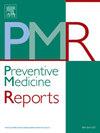Learning needs and experiences of hospital nurses in genetic medicine in a rural area of Japan: A cross-sectional questionnaire survey in Oita prefecture
IF 2.4
3区 医学
Q2 PUBLIC, ENVIRONMENTAL & OCCUPATIONAL HEALTH
引用次数: 0
Abstract
Objective: This study aimed to investigate hospital nurses' experiences in providing care to patients with genetic diseases and their families and to identify their educational needs regarding genetic medicine and genetic counseling in Oita Prefecture, a representative rural region of Japan.
Methods: This cross-sectional questionnaire survey was conducted at ten cancer treatment hospitals in Oita Prefecture, including two central hospitals for cancer genomic medicine and eight regional hospitals, from October 11, 2021 to January 20, 2022. Of 1881 invited nurses, 1001 valid responses were analyzed. Data were collected using an anonymous self-administered questionnaire covering demographics, understanding of genetic terms, care experiences, and learning needs.
Results: The respondents showed limited understanding of clinical genetics terminology, with fewer than 5 % having received genetics-related training. Only 8.6 % had experience in caring for patients and their families concerns about genetic diseases, and over 80 % of those felt inadequate. More than 70 % expressed a strong desire to learn about genetic medicine.
Conclusions: Hospital nurses in rural Japan have significant learning needs in genetic medicine and genetic counseling. Educational programs tailored to regional backgrounds, along with collaboration with clinical genetic specialists, especially certified genetic counselors, could contribute to ensuring equitable and high-quality genetic healthcare service.
日本农村地区医院护士遗传医学学习需求与经验:大分县横断面问卷调查
目的:调查日本农村代表性地区大分县医院护士对遗传病患者及其家属的护理经验,了解护士对遗传医学和遗传咨询的教育需求。方法:于2021年10月11日至2022年1月20日在大分县10家癌症治疗医院进行横断面问卷调查,其中包括2家癌症基因组医学中心医院和8家地区医院。对1881名受邀护士进行了1001份有效问卷分析。数据收集使用匿名自我管理问卷,涵盖人口统计学,对遗传术语的理解,护理经验和学习需求。结果:受访者对临床遗传学术语的理解有限,接受过遗传学相关培训的不到5%。只有8.6%的人有照顾遗传病患者及其家属的经验,其中80%以上的人感到不足。超过70%的人表达了学习基因医学的强烈愿望。结论:日本农村医院护士在遗传医学和遗传咨询方面存在显著的学习需求。根据地区背景量身定制的教育计划,以及与临床遗传专家,特别是经过认证的遗传咨询师的合作,可以有助于确保公平和高质量的遗传保健服务。
本文章由计算机程序翻译,如有差异,请以英文原文为准。
求助全文
约1分钟内获得全文
求助全文
来源期刊

Preventive Medicine Reports
Medicine-Public Health, Environmental and Occupational Health
CiteScore
3.90
自引率
0.00%
发文量
353
 求助内容:
求助内容: 应助结果提醒方式:
应助结果提醒方式:


